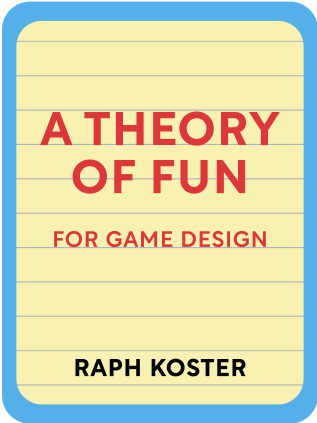

This article is an excerpt from the Shortform book guide to "A Theory of Fun for Game Design" by Raph Koster. Shortform has the world's best summaries and analyses of books you should be reading.
Like this article? Sign up for a free trial here .
What are the benefits of playing games? Can games teach you skills for the modern day?
Despite the fact that many people think games (especially video games) are a negative influence and distract you from the real world, Raph Koster asserts that games are actually beneficial in many ways. Koster says that games can teach you a number of skills including teamwork, lateral thinking, and can even teach you self-insight.
Below are the benefits of playing games according to A Theory of Fun for Game Design author Raph Koster.
The Benefits of Playing Games
So games are fun because they teach patterns. But what are these patterns? And what are the benefits of playing games? The author of A Theory of Fun for Game Design offers these:
- Calculation of odds, prediction of events
- This applies to any game involving probability, such as games where you roll a dice, Monopoly, dominoes, and card games.
- Social power and status
- Playing “house” with a group of kids is about jockeying for social status.
- Games involving force projection and territory control, like chess or Starcraft, are about social status as well.
- Spacial relationships— examining the environment
- In these games, you understand how the environment reacts to change, so that you can exercise power over it.
- This is true of Super Mario, chess, and sports games.
- Memory—recall and manage complex chains of information
- Counting cards in blackjack
- Visceral responses
- This includes shooting games, where you aim, shoot, and move in response to what’s on screen
- Teamwork
- This is true of games as wide-ranging from basketball to Counter-Strike.
These are universally helpful patterns to learn and have been helpful in evolutionary history. Consider how useful teamwork, memory, and social status were when humans were cavemen.
Many games we play today thus existed to train us to be better cavemen. But many skills we learn today are no longer immediately relevant, such as archery or running marathons.
Skills for the Modern Day
We could use more games that teach relevant modern skills that might also be counterintuitive, and possibly against our nature.
To use an analogy, we’ve evolved to find certain types of things revolting, such as green, slimy, smelly things. We’ve learned these rules because green slimy things were often toxic to humans. However, in today’s world, there are many more dangerous things that we haven’t evolved a reaction to. Take cleaning fluid—it’s a clear, attractive blue color. We haven’t evolved a visceral reaction to this, yet drinking it would be incredibly damaging!
Likewise, there are plenty of skills that would be useful in the modern day that we haven’t naturally evolved. Games can teach these skills.
For example, the game Simcity teaches large-scale network building and resource management, in ways that cavemen wouldn’t have needed to be concerned with.
The author suggests these counterintuitive behaviors that would be useful in the modern day:
- Avoiding xenophobia—empathizing with people not in our in-group
- Questioning obedience to leaders
- Resolving problems without the use of force
- Understanding complex relationships, such as how peace treaties affect oil prices
Games for some of the examples above do exist, but they’re niche. Why are they less popular than the ones that teach obsolete skills? The author suggests that simpler games that don’t challenge us and require thought are more pleasant—they allow us to stay in the pleasant subconscious.
Lateral Thinking
Games may also teach lateral thinking, or finding alternative ways to reach the goal. This is sometimes known as cheating.
Circumventing rules has been useful in warfare, such as guerrilla ambushes during the Revolutionary War.
In games, we preserve rules and sportsmanship partly because otherwise the game loses meaning—it no longer teaches the “correct” lesson. What you learn in the game by cheating no longer works in the real world. Rules, in turn, become a social contract between those playing the game.
Self-Insight
The author argues that for games to become as venerated as other media, they need to provide us with insights into ourselves.
A common criticism of games is that they feature gratuitous sex and violence, and thus aren’t reputable. The author argues just this isn’t the complete explanation—literature and film have plenty of sex and violence too, and yet they’re still admired as art. Rather, games feature shallow sex and violence that don’t teach anything more.
In contrast, consider the strategy game MULE, which is a multiplayer strategy game featuring economics. In this game, off-world colonists compete to be the richest. As a player, it’s possible to become the richest colonist, but the colony could still perish and so cause everyone to lose. The game therefore teaches the delicate interaction between individuals and society.
Or consider a hypothetical game where you gain power based on how many people you control, but you can heal yourself based on how many friends you have. Then include a rule that causes friends to fall away when you gain power. The success condition of the game is about the overall survival of the community.
- There are a few ways you can play the game. You can be at the top with no allies, or you can be lower in status with more friends.
- Many possible lessons can be taught with this game, not just power projection but also duty, responsibility, and caring for your posterity.
These types of games provide self-insight that can make games more respectable and valuable to players.

———End of Preview———
Like what you just read? Read the rest of the world's best book summary and analysis of Raph Koster's "A Theory of Fun for Game Design" at Shortform .
Here's what you'll find in our full A Theory of Fun for Game Design summary :
- What makes games fun
- Why it's important for games to have a learning component
- Whether or not games should be considered art






